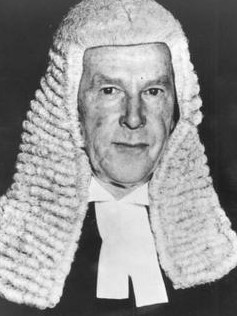Garfield Barwick was a towering figure in the development of Australian legal and constitutional thought. Born in Sydney in 1903, he rose from modest beginnings to occupy the highest judicial position in the country. He was known for his intellect, ambition, and influence across both legal and political domains. Barwick’s early life was marked by academic excellence. He studied at the University of Sydney where he completed degrees in arts and law. His performance at university was outstanding, and he quickly became one of the most promising legal minds of his generation.
After being admitted to the New South Wales Bar, Barwick built a formidable career as a barrister. He became renowned for his skills in advocacy and legal analysis. During the 1930s and 1940s, he appeared in many of the most significant cases in Australian courts. His reputation grew not just because of his success, but also because of his clear and forceful presentation of legal arguments. He eventually took silk, becoming a Queen’s Counsel, and by the early 1950s was considered one of the most accomplished advocates in the Commonwealth.
Barwick entered public life when he was elected to the House of Representatives in 1958 as a member of the Liberal Party. He was immediately appointed Attorney General and later served as Minister for External Affairs. As Attorney General, Barwick initiated several important legal reforms. He also represented Australia on the international stage and played a role in shaping foreign policy during a time of global tension. His political career was brief but impactful.
In 1964, Barwick was appointed Chief Justice of the High Court of Australia. He held this position until 1981, making him the longest serving Chief Justice in Australian history. During his time on the bench, he presided over a period of transformation in constitutional law. He was known for his strong belief in the sovereignty of Parliament and his resistance to judicial activism. His judgments often reflected a conservative and literal approach to interpretation. He believed that courts should not depart from the clear meaning of legal texts unless absolutely necessary.
Barwick was also a central figure in one of the most controversial episodes in Australian political history. In 1975, during the constitutional crisis that led to the dismissal of Prime Minister Gough Whitlam, Barwick provided legal advice to the Governor General, Sir John Kerr. This advice supported the view that the Governor General had the authority to dismiss the Prime Minister if he could not secure supply. Barwick’s involvement drew criticism from some quarters, as it was seen by many as breaching the expected neutrality of the judiciary.
Despite controversy, Barwick’s contributions to Australian law remain significant. He helped shape many foundational principles of constitutional and commercial law. He was knighted and received numerous honours for his service. After his retirement, he published memoirs and continued to influence legal thinking. Garfield Barwick died in 1997 at the age of ninety four. His legacy is marked by sharp intellect, deep commitment to the rule of law, and a complex role in the nation’s political and legal evolution.

No Responses